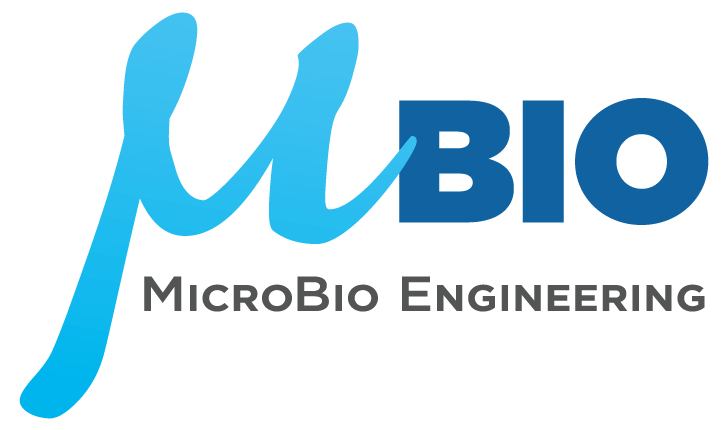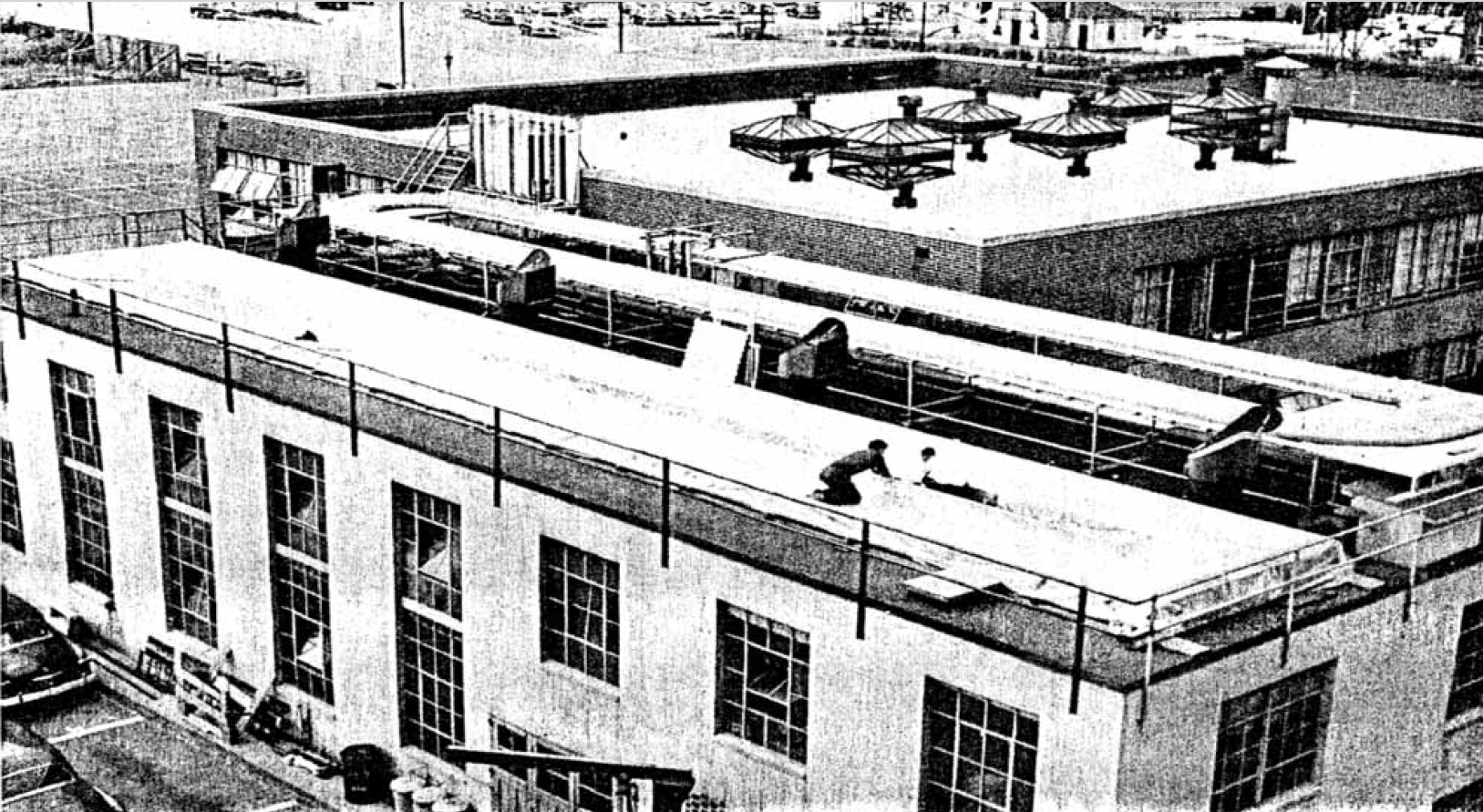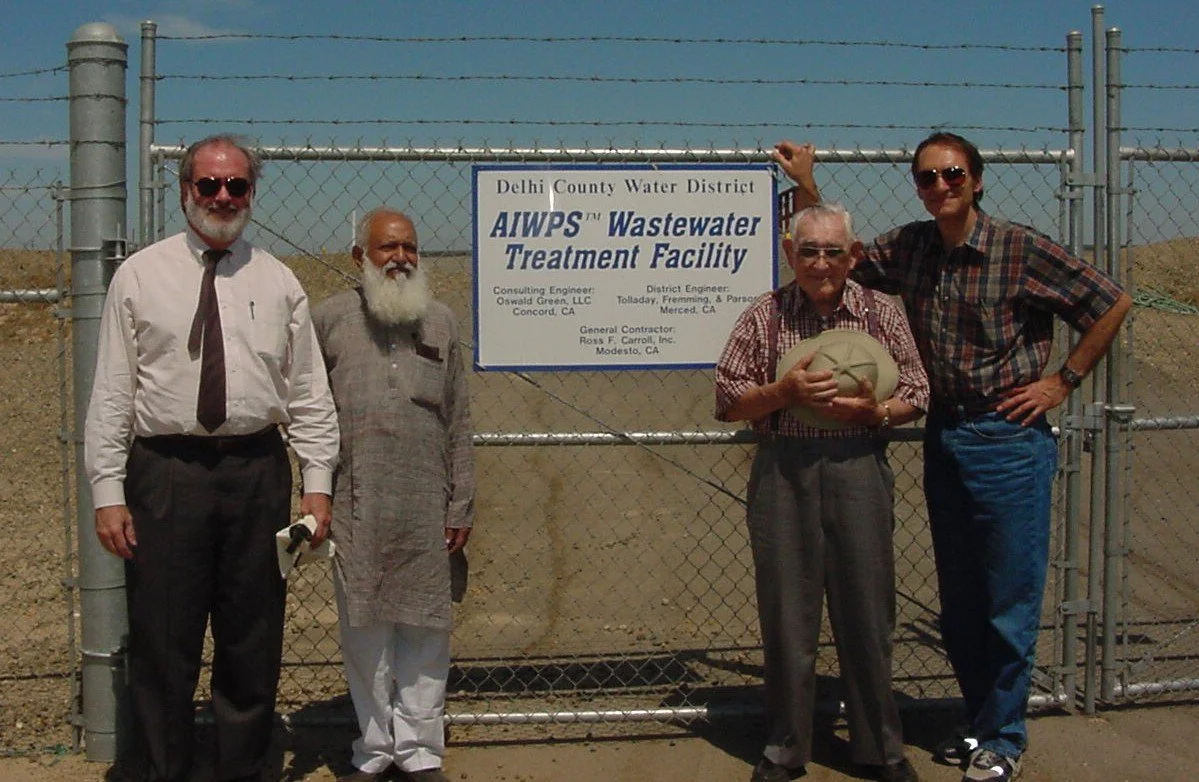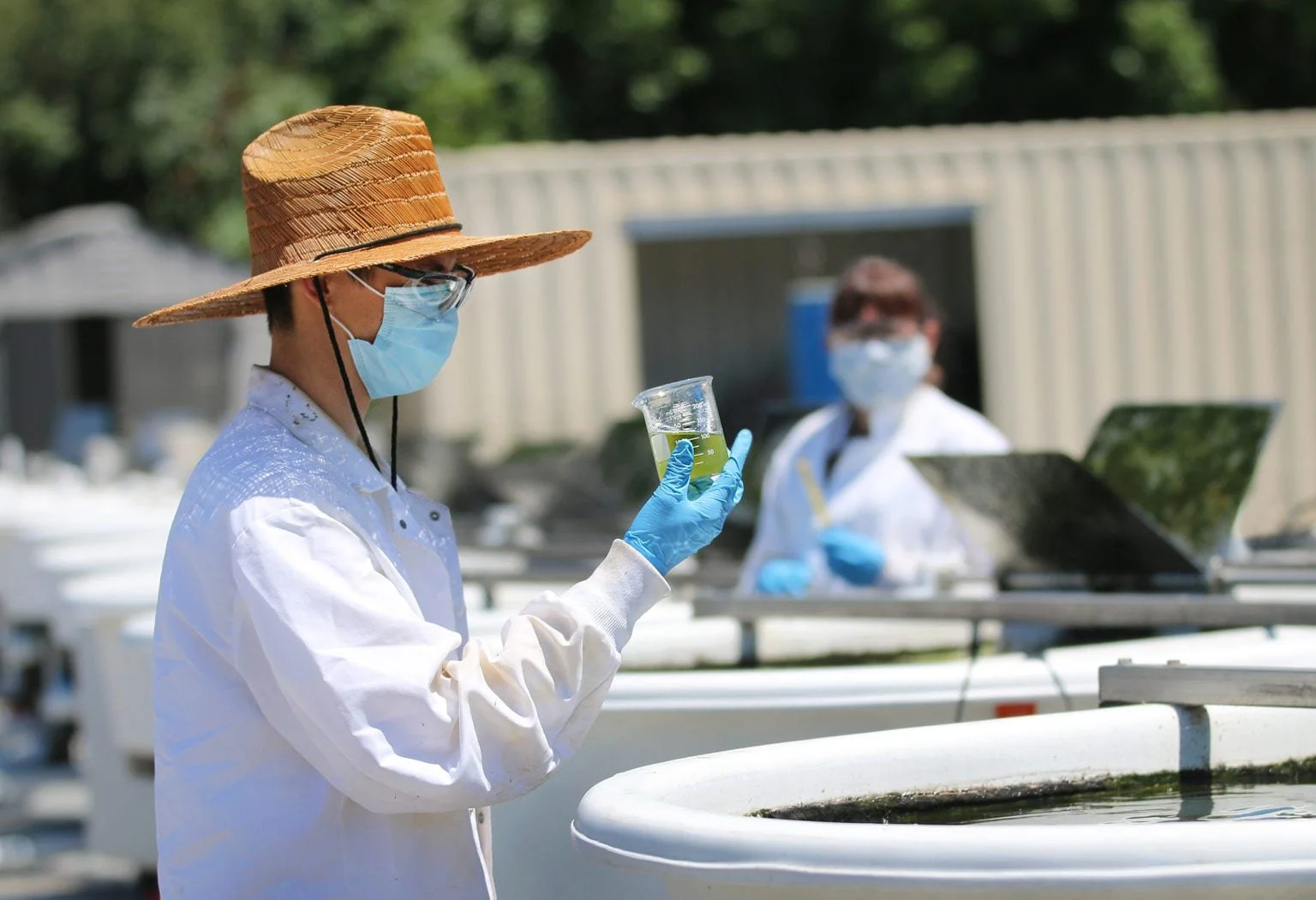The Rise of Microalgae Research (1950s–1970s)
MicroBio Engineering was founded by Tryg Lundquist and John Benemann in 2005; though roots extend back to the 1950s, when researchers began exploring microalgae as a sustainable food source and tool for wastewater treatment. Early work by institutions like Stanford, UC Berkeley, and the Tokugawa Institute—summarized in the foundational text Algal Culture: From Laboratory to Pilot Plant—established microalgae's potential for future investigation.
Microalgae research on the roofs of UC Berkeley - 1950s
An artist’s rendering of a microalgae facility - 1970s
During this period, Dr. William Oswald and collaborators at UC Berkeley, including John Benemann, were researching low-cost cultivation and wastewater treatment techniques, leading to the invention of paddlewheel-mixed "High-Rate Ponds”—still the standard for large-scale algae systems. These innovations laid the groundwork for modern applications in biofuels, wastewater treatment, and beyond.
Advancing Algal Biotechnology (1980s–2000s)
Oswald and co. at the opening of the AIWPS in Delhi - 1998
As the field matured, Oswald mentored future algae leader Tryg Lundquist, and their team designed the Advanced Integrated Wastewater Pond System (AIWPS), with the first implementation built in Delhi, CA in 1998.
Meanwhile, Benemann played a central role in the U.S. Department of Energy’s Aquatic Species Program, which explored microalgae for biodiesel and other conversion pathways. Though economic constraints shelved large-scale commercialization at the time, the program helped define today’s algal biofuel landscape. Research and commercial development of high-value algae products (pigments, cosmetics, etc), nutraceuticals, algae-based materials, and other pathways also took off during this period.
The Founding of MicroBio Engineering, Inc. (2005-Present)
After witnessing the rise and fall of several highly anticipated innovations in wastewater treatment, biofuel production, and algal bioplastics, Benemann and Lundquist sought a rational, long-term approach to the field. In 2005 they founded MicroBio Engineering to fill that role, incorporating in 2009 and bringing on Ian Woertz as COO. MBE contributed to feasibility studies with ExxonMobil, Petrobras, and others—advancing the legacy of the Aquatic Species Program with a more pragmatic approach to biofuels. After authoring multiple papers and contributing years of data to biofuels research, MBE widened its efforts into wastewater/runoff treatment, bulk proteins, biofertilizers, livestock and aquaculture feed, biosolids conversion pathways, and strain development. Further, MBE responded to the lack of well-built, standardized algae research equipment by launching a technology development department, a commercially successful effort paused during the COVID-19 pandemic. Under the guidance of Tryg Lundquist, MBE initiated a partnership with Cal Poly SLO fostering student research and introducing algal biotechnology to new generations.
A Cal Poly SURE student taking a sample - 2021
MicroBio Engineering continues its tradition of supporting partners in the industry and producing quality research for government programs today, with Shelley Blackwell (COO) and Dr. Juergen Polle (CSO) joining the leadership team in 2024. Through industry booms, busts, and shifting markets, MBE has remained a consistent force for over 15 years by providing rational, evidence-based consulting to their clients; creating well-designed technology and novel microalgae systems; and successfully tackling project after project for the USDOE, California Energy Commission, and other public institutions.





